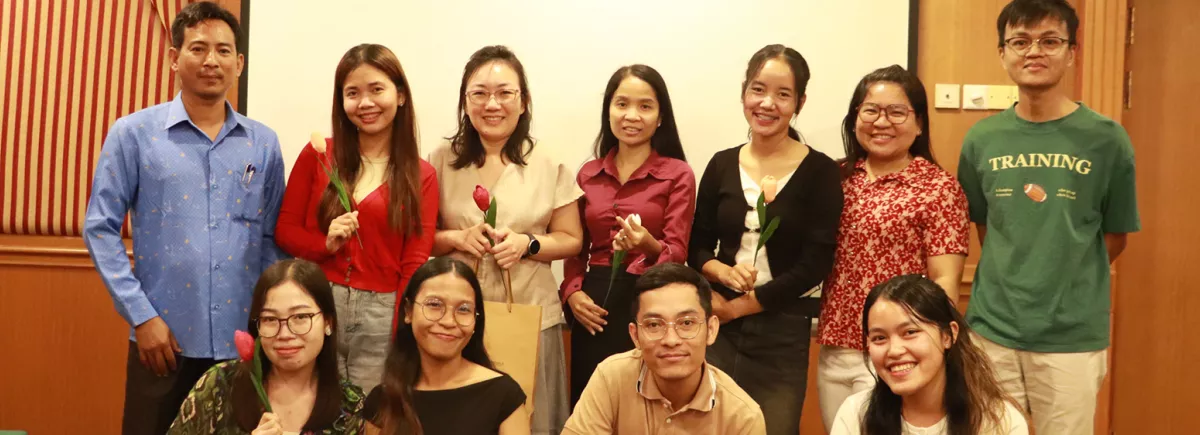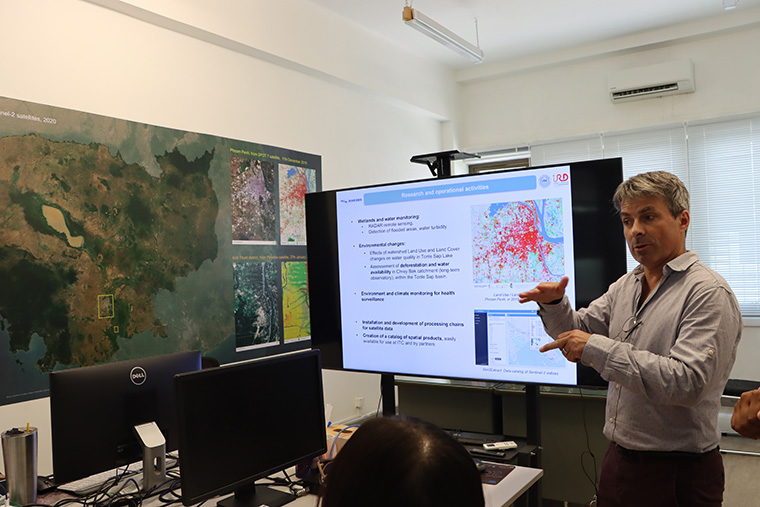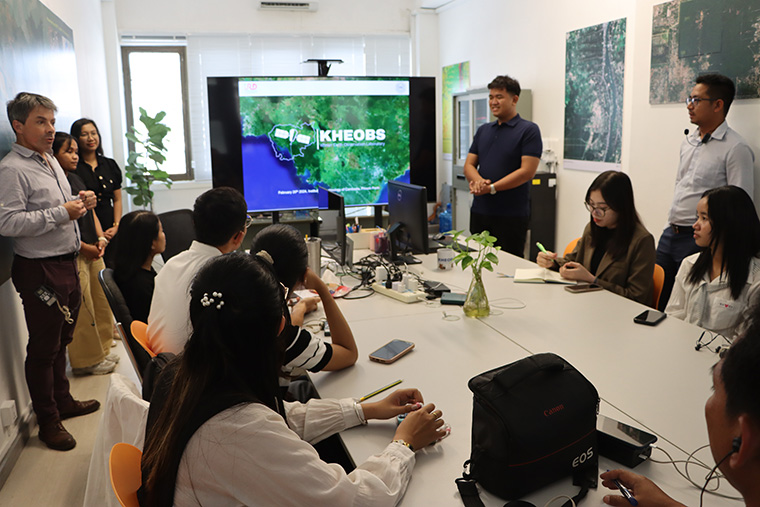
10 Cambodian Journalists Committed to Fighting Disinformation
Related project
Media for One healthFrom March 17 to 21, 2025, CFI trained 10 Cambodian journalists on the challenges of disinformation and fact-checking techniques.
The Urgency of Combating Disinformation
Countries around the world are facing the consequences of disinformation to varying degrees. Unfortunately, medical and environmental topics are no exception, and Cambodia is also grappling with the phenomenon of fake news. Committed to the fight against disinformation, CFI brought its expertise to support a group of journalists as part of the Media for One Health project.
Over five days, participants learned the ethical fundamentals and fact-checking journalism techniques aimed at improving the quality of their health and environmental reporting. The training was led by Choo Ching Yee, a consultant and trainer in digital journalism, and former fact-checker for Agence France-Presse in Malaysia.

A Comprehensive Training and Better-Equipped Journalists
Through the training modules, journalists became more aware of the impact of information disorder. They also deepened their understanding of fact-checking principles and developed practical skills to avoid spreading rumours and to produce verified content on environmental and medical topics.
Trainer covered both conceptual topics — such as understanding disinformation and ethical considerations — and more technical content, including online safety, verification tools, and content production for various media platforms. Since the journalists already had some fact-checking experience, the training also included professional exchanges and case studies.
A New Bridge Between Journalists and Science, with ITC and IRD
A core element of the Media for One Health project is building bridges between the scientific community and journalists seeking to better understand complex phenomena through the One Health approach.
This March session was no exception. The Cambodian journalists in the program gained new insights by visiting the KHEOBS (Khmer Earth OBServation) laboratory. Located at the Institute of Technology of Cambodia (ITC) in Phnom Penh, this new lab is the result of a collaboration between ITC and the French National Research Institute for Sustainable Development (IRD).
It tackles major global challenges — climate change, pollution, biodiversity loss — using satellite imagery and remote sensing tools to better understand these issues and their health impacts.
The program included presentations on environmental monitoring, web applications comparing Cambodia past and present, and lively discussions on the health effects of climate change. Experts from diverse backgrounds — geomaticians, socio-anthropologists, data scientists — shared their work and vision for a more sustainable world with the journalists. These new insights will enhance the technical quality and impact of their reporting.

Next Steps: A Workshop on the use of social media
This training enabled Cambodian journalists involved in the project to gain a better understanding of the challenges posed by disinformation and to become familiar with fact-checking tools. They are now better equipped to identify and combat disinformation in Cambodia, as illustrated by articles from the Cambodian media outlet Kiripost, supported by CFI, which challenge false claims about the supposed benefits of consuming dog meat or raw duck gallbladders.
As a significant portion of both information and misinformation is spread via social media, the same journalists subsequently took part in a training session from April 19 to 23. This session focused on how to find story ideas on social media and on techniques for effectively sharing their content across these platforms.


